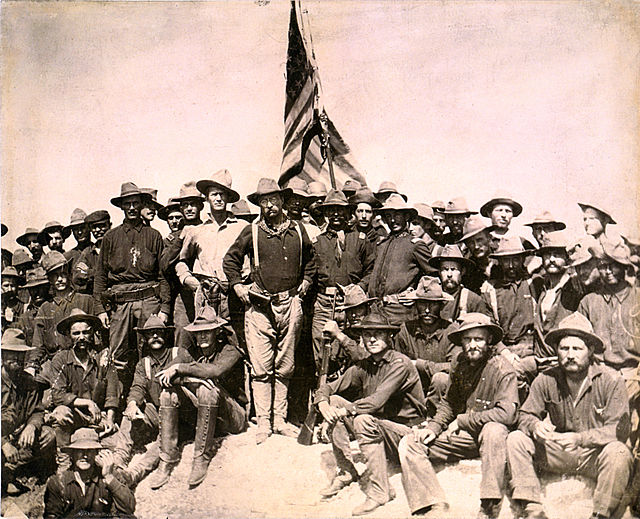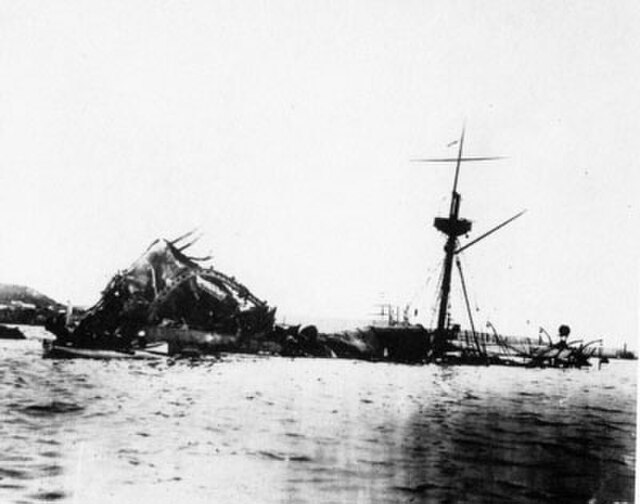The Rough Riders was a nickname given to the 1st United States Volunteer Cavalry, one of three such regiments raised in 1898 for the Spanish–American War and the only one to see combat. The United States Army was small, understaffed, and disorganized in comparison to its status during the American Civil War roughly thirty years prior. Following the sinking of USS Maine, President William McKinley needed to muster a strong ground force swiftly, which he did by calling for 125,000 volunteers to assist in the war. The U.S. had gone to war in opposition to Spanish colonial policies in Cuba, which was then torn by a rebellion. The regiment was also nicknamed "Wood's Weary Walkers" for its first commander, Colonel Leonard Wood. This reflected their dissatisfaction that despite being cavalry, they ended up fighting in Cuba as infantry, since their horses were not sent there with them.
The Rough Riders at the Battle of San Juan Hill in Santiago de Cuba in July 1898
Colonel Theodore Roosevelt in his Rough Riders uniform on October 26, 1898, by Rockwood.
Troops arriving in Tampa
Rough Riders heading to Cuba aboard the steamship Yucatan.
The Spanish–American War began in the aftermath of the internal explosion of USS Maine in Havana Harbor in Cuba, leading to United States intervention in the Cuban War of Independence. The war led to the United States emerging predominant in the Caribbean region, and resulted in U.S. acquisition of Puerto Rico, Guam, and the Philippines. It also led to United States involvement in the Philippine Revolution and later to the Philippine–American War.
(clockwise from top left) Signal Corps extending telegraph lines USS Iowa at the Victory Fleet Review in August 1898 in New York Harbor Filipino soldiers wearing Spanish pith helmets outside Manila The Spanish signing the Treaty of Paris Roosevelt and his Rough Riders at San Juan Hill Replacing of the Spanish flag at Fort San Antonio Abad (Fort Malate)
A Spanish propaganda drawing published in La Campana de Gràcia (1896) by Manuel Moliné criticizing U.S. behavior regarding Cuba. Upper text (in old Catalan) reads: "Uncle Sam's craving", and below: "To keep the island so it won't get lost".
An American cartoon published in Judge, February 6, 1897: Columbia (representing the American people) reaches out to the oppressed Cuba (the caption under the chained child reads "Spain's 16th century methods") while Uncle Sam (representing the U.S. government) sits blindfolded, refusing to see the atrocities or use his guns to intervene (cartoon by Grant E. Hamilton).
The sunken USS Maine in Havana harbor








